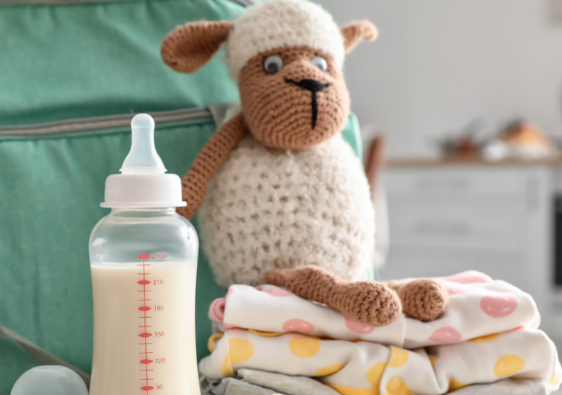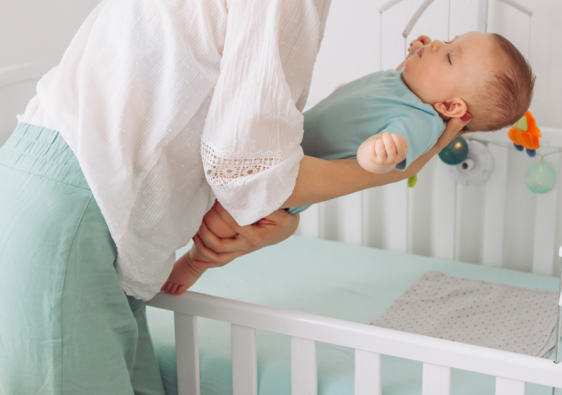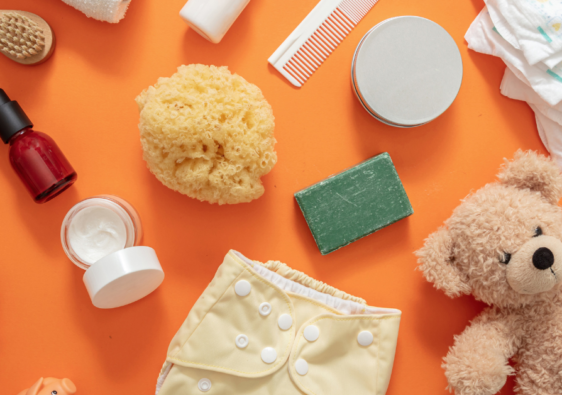As a new parent, I found myself overwhelmed by the sheer number of baby products available. The desire to provide the best for my little one led me to explore natural choices.
This comprehensive guide shares my experiences and insights into top-rated natural baby products, helping you make informed decisions for your baby’s health and the environment.
Understanding Natural Baby Products
What Makes a Baby Product ‘Natural’?
Natural baby products are typically made from ingredients sourced from nature, with minimal processing and without synthetic chemicals. However, the term ‘natural’ isn’t strictly regulated in many countries, so it’s essential to look beyond marketing claims and examine ingredient lists carefully.
The Benefits of Going Natural
Choosing natural baby products offers several advantages:
Natural products reduce your baby’s exposure to potentially harmful chemicals. They’re often gentler on sensitive baby skin, decreasing the risk of irritation or allergic reactions.
Many natural products are more environmentally friendly, supporting sustainable and ethical production practices.
Common Natural Ingredients
When exploring natural baby products, you’ll often encounter these ingredients:
Organic cotton is a popular choice for clothing and bedding, grown without synthetic pesticides or fertilizers. Bamboo, another sustainable fabric option, is naturally antimicrobial and moisture-wicking.
Aloe vera, known for it’s soothing properties, is often used in skincare products.
Chamomile and calendula are gentle herbs with anti-inflammatory properties, often found in baby lotions and creams. Here are some key categories to consider:
Skincare products include lotions, creams, and oils formulated with natural ingredients. Natural diapers and wipes offer choices to conventional disposable options.
Clothing and bedding made from organic materials provide comfort without harmful chemicals.
Feeding accessories, such as bottles and utensils, are available in natural materials like glass or silicone. Natural toys and teethers, often made from wood or natural rubber, provide safe play options.
Cleaning products formulated with plant-based ingredients help maintain a healthy home environment.
Certifications to Look For
Certain certifications add credibility to a product’s natural claims:
The USDA Organic seal shows that agricultural ingredients are organically produced. GOTS (Global Organic Textile Standard) certification ensures organic status of textiles. EWG Verified and MADE SAFE certifications show products free from harmful chemicals.
The Leaping Bunny logo signifies cruelty-free products not tested on animals.
While not all natural products have certifications, these labels can be helpful guides, especially when you’re just starting your natural product journey.
Choosing Top-Rated Natural Baby Products
Factors to Consider
When selecting natural baby products, keep these factors in mind:
Ingredient transparency is crucial. Look for brands that clearly list all ingredients and explain their sources.
Effectiveness is key – natural doesn’t always mean better if the product doesn’t work well.
Safety should be your top priority, so research any unfamiliar ingredients.
Consider the environmental impact of the product and it’s packaging. While natural products can be pricier, weigh the long-term value against the initial cost.
Brand reputation matters, so read reviews and ask for recommendations from other parents.
Reading Labels and Ingredient Lists
Deciphering product labels is a valuable skill for any parent interested in natural products. Here are some tips:
Seek out products with short, simple ingredient lists. Be cautious of vague terms like ‘fragrance’ or ‘parfum,’ which can hide numerous synthetic chemicals.
Research any unfamiliar ingredients to understand their purpose and origin.
Be wary of ‘greenwashing’ – claims like ‘all-natural’ without substantiation. Some products may use a few natural ingredients but still contain synthetic additives.
Popular Natural Baby Brands
While I encourage you to do your own research, here are some brands that consistently receive high ratings for their natural baby products:
Earth Mama offers a range of organic skincare and wellness products for pregnancy and baby care. Weleda, a pioneer in natural cosmetics, provides baby care products based on anthroposophic principles.
Burt’s Bees Baby is known for it’s natural ingredients and commitment to sustainability.
The Honest Company, founded by actress Jessica Alba, offers a wide range of natural baby and household products. Bambo Nature specializes in eco-friendly diapers and baby care items.
Implementing Natural Products in Your Baby Care Routine
Starting Small
Transitioning to natural baby products can feel overwhelming at first. My advice is to start small and gradually replace conventional products with natural choices.
This approach allows you to observe how your baby reacts to each new product and manage the transition cost-effectively.
Begin by replacing one product at a time, perhaps starting with a natural baby lotion or diaper cream. As you become more comfortable, you can expand to other categories like diapers, wipes, or bath products.
Creating a Natural Nursery
Creating a natural nursery environment extends beyond the products you use directly on your baby. Consider these aspects:
Choose organic bedding and clothing to minimize your baby’s exposure to pesticides and other chemicals. Opt for wooden or natural rubber toys instead of plastic ones.
Use low-VOC (volatile organic compound) paints and finishes when decorating the nursery.
Incorporate air-purifying plants to improve indoor air quality, but ensure they’re placed out of your baby’s reach. Consider using a natural air purifier or essential oil diffuser with baby-safe oils to maintain a fresh atmosphere.
Natural Diapering Options
Diapering is an area where natural options abound:
Cloth diapers made from organic cotton or bamboo are reusable and environmentally friendly. If you prefer disposables, look for biodegradable options made from sustainable materials.
Natural wipes, or reusable cloth wipes, can be gentler on your baby’s skin.
Natural diaper creams containing ingredients like zinc oxide and calendula can soothe and protect your baby’s delicate skin. If you’re considering cloth diapers, start with a small number to see if it works for your family before investing in a full set.
Overcoming Challenges with Natural Baby Products
Managing Expectations
As I transitioned to natural baby products, I had to adjust my expectations. Natural products may not lather or smell like conventional ones, and some might need more frequent application.
Results might not be as immediate as with synthetic products, but the long-term benefits for your baby’s health and the environment can be significant.
Dealing with Potential Allergies
Even natural ingredients can cause allergic reactions in some babies. Always patch test new products before full use.
Introduce one new product at a time to easily identify any potential allergens.
Keep a log of products used and any reactions observed.
If you notice any concerning symptoms, such as redness, rash, or irritation, discontinue use immediately and ask with your pediatrician.
Balancing Cost and Benefits
Natural baby products often come with a higher price tag, but there are ways to manage this:
Prioritize which products are most important to buy natural based on your baby’s needs and your personal values. Look for multi-use products to maximize value, such as a natural balm that can be used for diaper rash, dry skin, and minor scrapes.
Consider making some products at home, like baby wipes, using natural ingredients. Buy in bulk when you find products you trust to save money in the long run.
Remember that investing in natural products now may lead to long-term health benefits for your baby.
Advanced Techniques for Natural Baby Care
DIY Natural Baby Products
As you become more comfortable with natural baby care, you might want to try making your own products. Some easy DIY options include:
Homemade baby wipes using soft cloth or paper towels, water, and a small amount of natural baby wash. Natural diaper cream can be made with coconut oil, shea butter, and zinc oxide powder.
A simple baby massage oil can be created by mixing a carrier oil like sweet almond oil with a drop or two of lavender essential oil (always dilute essential oils properly for babies).
Incorporating Traditional Remedies
Many cultures have traditional baby care practices that align well with natural approaches:
Ayurvedic baby massage techniques can promote bonding and support your baby’s development. Traditional Chinese Medicine-inspired baby teas, such as fennel or chamomile, may help with digestion (always ask your pediatrician first).
Native American herbal remedies, like the use of slippery elm for diaper rash, have been used for generations.
Always talk to a healthcare professional before trying any new remedies or techniques, especially with infants.
Staying Informed and Adapting
The field of natural baby products is constantly evolving. Stay informed by following reputable natural parenting blogs and websites.
Join online communities focused on natural baby care to share experiences and learn from other parents.
Regularly check for updates from trusted certification bodies and stay abreast of new research in the field of natural baby care. Remember that your baby’s needs will change over time, so be prepared to adjust your natural product choices as your baby develops.
Key Takeaways
- Natural baby products offer benefits for your baby’s health and the environment
- Always read labels carefully and look for reputable certifications
- Start small when transitioning to natural products and adjust your expectations
- Be aware of potential challenges like allergies and higher costs
- Stay informed about the latest research and be ready to adapt your approach as your baby grows
People Also Asked
What are the best natural baby skincare products?
Natural baby skincare products often include ingredients like calendula, chamomile, and shea butter. Popular brands include Earth Mama, Weleda, and Burt’s Bees Baby.
Always patch test new products and ask your pediatrician if you have concerns.
Are cloth diapers better than disposable diapers?
Cloth diapers can be more environmentally friendly and cost-effective in the long run. They may also be gentler on your baby’s skin. However, they require more time and effort for washing and maintenance.
The choice depends on your lifestyle and priorities.
How can I make natural baby wipes at home?
To make natural baby wipes, you’ll need soft cloths or paper towels, water, and a small amount of natural baby wash or oil. Mix the ingredients, soak the cloths, and store them in an airtight container.
Use within a few days to prevent mold growth.
What are the benefits of organic cotton for baby clothes?
Organic cotton is grown without synthetic pesticides or fertilizers, making it safer for your baby’s sensitive skin. It’s also more environmentally friendly and often softer than conventional cotton. Look for GOTS certification to ensure the highest organic standards.
Are natural teething remedies safe for babies?
Some natural teething remedies, like frozen washcloths or teething toys made from natural rubber, can be safe and effective. However, always ask your pediatrician before using any herbal remedies or essential oils for teething, as some can be harmful to infants.
How do I choose a natural baby shampoo?
Look for shampoos with simple, recognizable ingredients. Avoid sulfates, parabens, and artificial fragrances.
Opt for mild, tear-free formulas with natural cleansing agents like coconut-based surfactants.
Popular natural brands include California Baby and Honest Company.
What are the best natural choices to talcum powder?
Natural choices to talcum powder include cornstarch, arrowroot powder, and kaolin clay. These can help absorb moisture and prevent diaper rash.
Always apply sparingly and keep powder away from your baby’s face to prevent inhalation.
How can I naturally treat diaper rash?
Natural diaper rash treatments include allowing your baby’s bottom to air dry, using cloth diapers or chemical-free disposables, and applying natural balms with zinc oxide or calendula. Frequent diaper changes and gentle cleaning can also help prevent and treat rash.
Are essential oils safe for babies?
Essential oils should be used with extreme caution around babies. Many are too strong for infants and can cause skin irritation or respiratory issues.
If you choose to use them, always dilute properly and ask an aromatherapist or healthcare provider experienced in essential oil use for babies.
What are the best natural baby laundry detergents?
Natural baby laundry detergents should be free from harsh chemicals, dyes, and fragrances. Look for plant-based ingredients and hypoallergenic formulas.
Brands like Seventh Generation and Molly’s Suds offer effective natural options.
Always rinse clothes thoroughly to remove all detergent residue.


